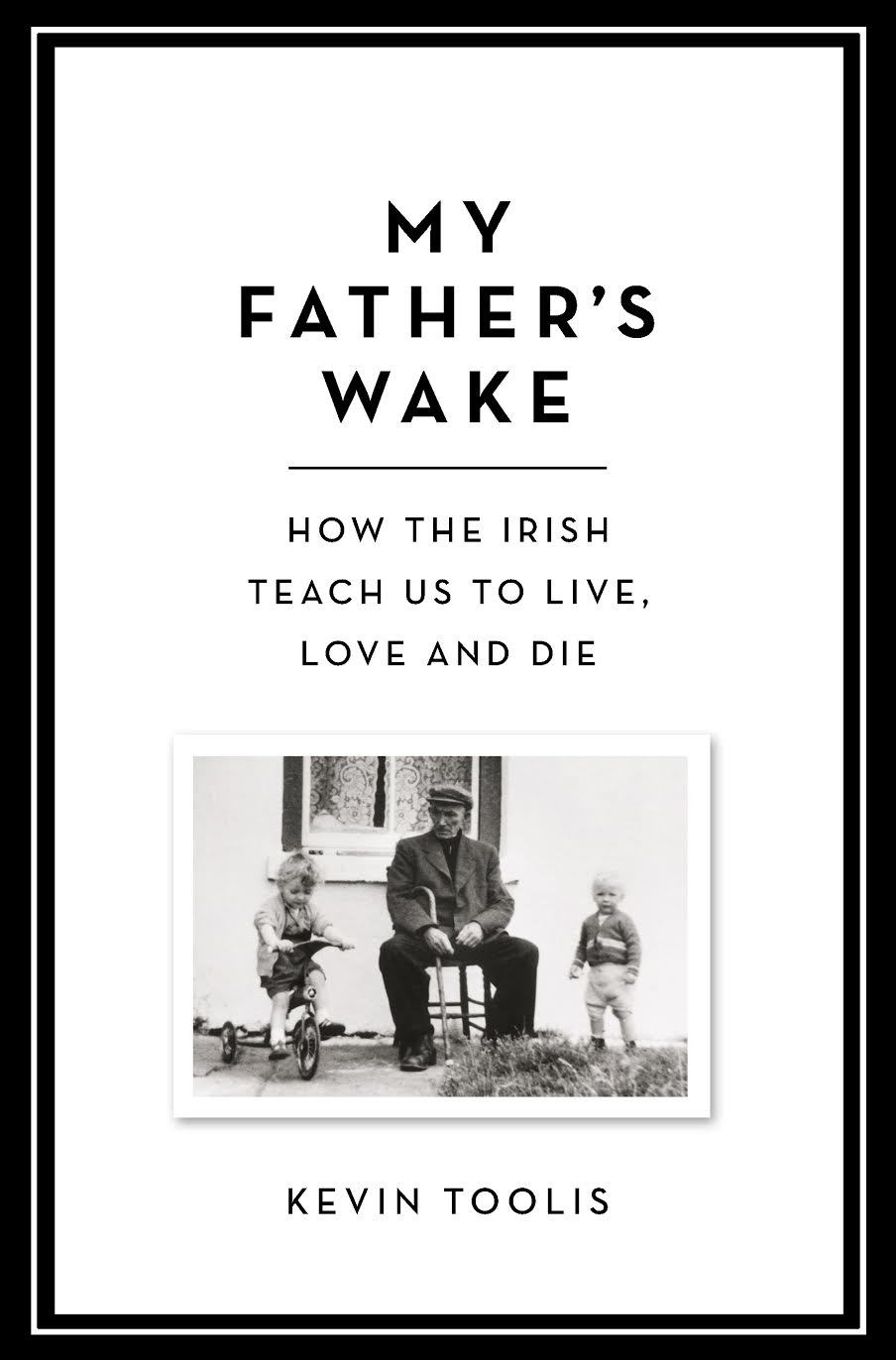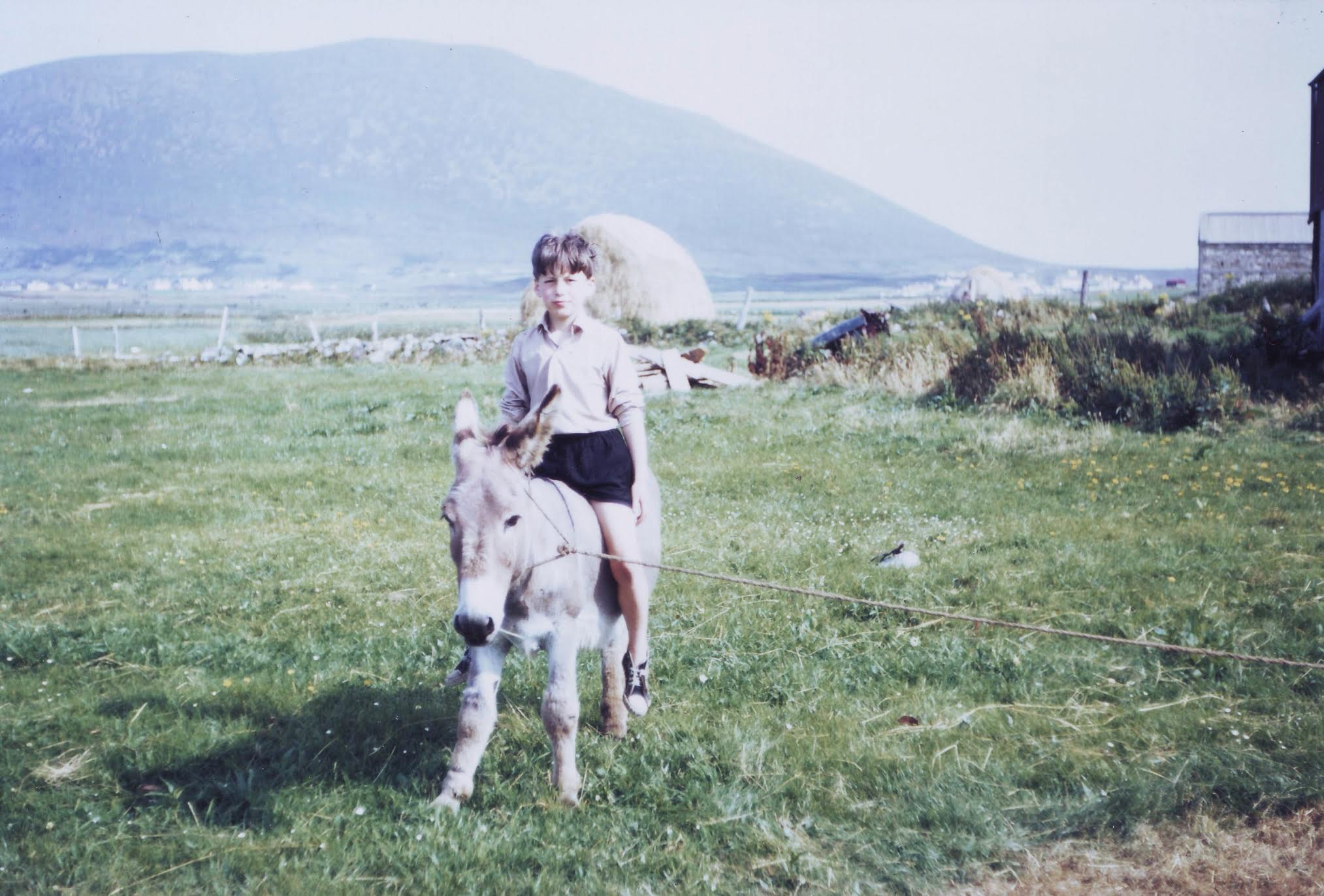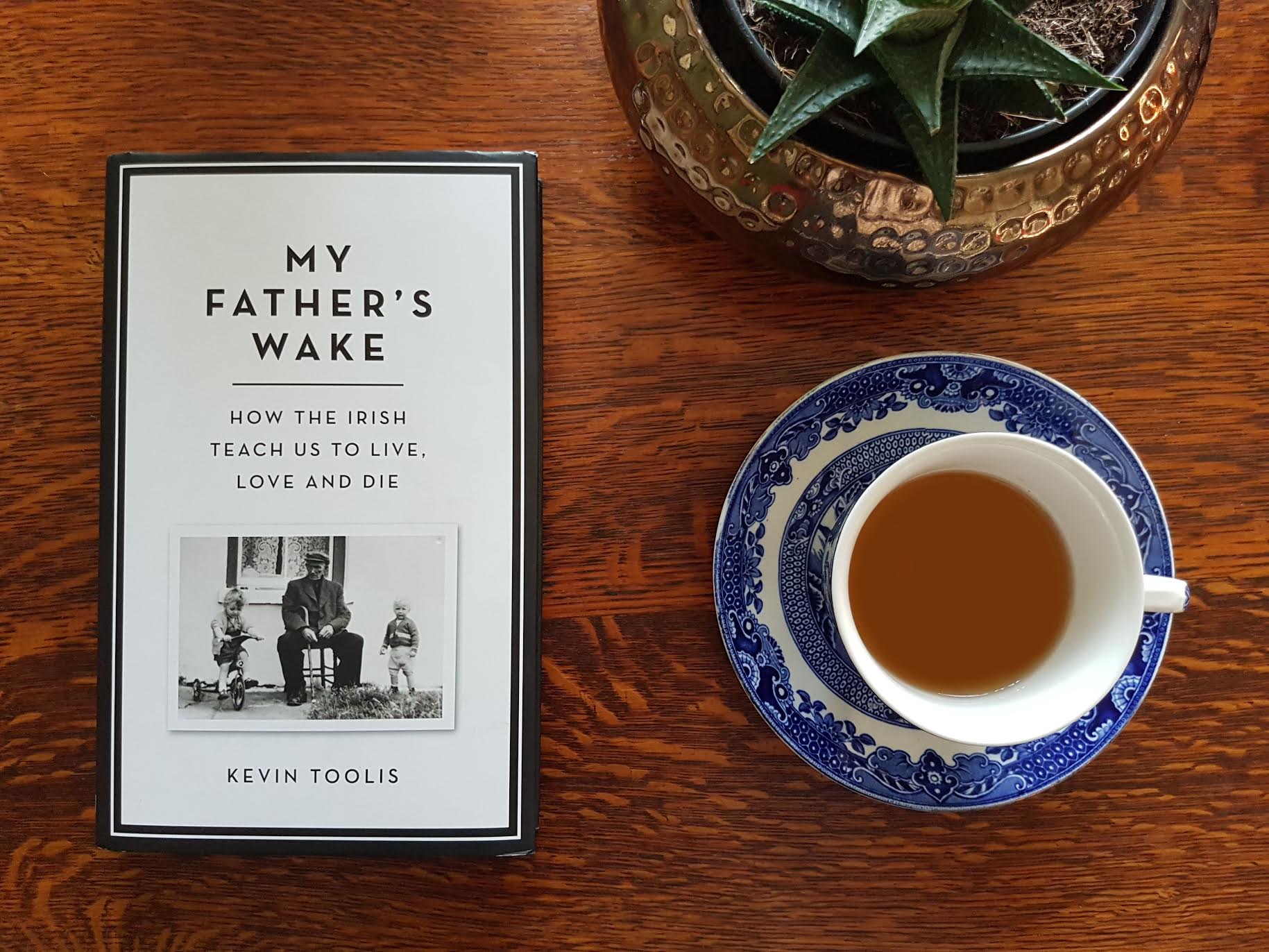Armed with questions, a copy of My Father’s Wake and her very own personal death date (note: exactly what a personal death date is and how you get one is revealed in the book), Lucy Coleman Talbot meets Kevin Toolis for breakfast on an unusually bright February morning in London.
 Our chat begins with an ancient whisper, the Iliad, a poem written in 800 B.C.E. Kevin explains that the wake is a rite as old as time, one that is not confined to Irish shores. This ancient Greek poem ends with the death of Hector; whose body is brought back to the city of Troy on a four-wheeled wagon, followed by many of his friends ‘wailing and lamenting … as though he was on his road to death’. Once Hector’s body is laid out at home, the women of Troy surround him with their lament song. Hector’s wife Andromache, clasps her husband’s head and expresses her pain, sorrow and fears for the future. As grand and dramatic as this might sound, Kevin doesn’t want us to see this as anything other than ordinary and natural. The oldest rite of humanity.
Our chat begins with an ancient whisper, the Iliad, a poem written in 800 B.C.E. Kevin explains that the wake is a rite as old as time, one that is not confined to Irish shores. This ancient Greek poem ends with the death of Hector; whose body is brought back to the city of Troy on a four-wheeled wagon, followed by many of his friends ‘wailing and lamenting … as though he was on his road to death’. Once Hector’s body is laid out at home, the women of Troy surround him with their lament song. Hector’s wife Andromache, clasps her husband’s head and expresses her pain, sorrow and fears for the future. As grand and dramatic as this might sound, Kevin doesn’t want us to see this as anything other than ordinary and natural. The oldest rite of humanity.
The death whisper is what we know and feel as humans, a wisdom passed down through generations and learned by the very act of attending funerals (and if possible, wakes).
Whilst reading, My Father’s Wake, it struck me that these small touches; borrowing chairs from the local pub for his father, Sonny’s, wake, the mass preparation of ham sandwiches and strong tea, or locals helping with Sonny’s burial, carried the most meaning. They are the core of a community, but that not everyone has a community. People die alone every day and for those that don’t, an awkwardness often forms around their death, masked as a fear of intruding or imposing. Kevin says this is the ever-present problem with our ‘Western Death Machine’, a term he coined to capture the industrialisation of death and our death denying culture. He points out that community does not have to be the entire village of Dookinella (the birth, death and final resting place of Sonny) and it can exist through human connections, however small. This, he explains, is what the Irish wake taught him. From a young age attending wakes was normal and this meant life and death wasn’t separated. There is no fear of doing it wrong when you have had so much practice.
The notion that death must be private, a kind of ‘invite only’ event is a new unwritten rule courtesy of our Western Death Machine. When death moved out of the home it’s like the door got locked. Death ritual became less free, it became fixed to a 30-minute time slot and a telephone booking. Kevin’s book begins at Sonny’s deathbed, in the company of his family and friends and people Kevin had never met. The question, ‘What could these people learn from watching my father die?’ became the premise for My Father’s Wake. These people could learn to accept death by experiencing Sonny’s final moments, they could face death first hand, learn from it, and take it with them into the care of their own fathers, mothers and children.

I found the death of Kevin’s brother Bernard to be the important turn in the story. He describes it with such poetry:
“Bernard’s death spilled into me. I felt drawn towards something I could not define: human sorrow, lives taken, grief, the mortal aftermath and the realm of the dead.”
It leads Kevin all over the world as he embarks (quite literally) on a death hunt, experiencing famine, war and plague first hand. He found the most complicated and dangerous situations, searching for some kind of meaning, facing death over and over in the most difficult of conditions. Because of this, My Father’s Wake offers not only insight into the wake, ‘the best guide to life you could ever have,’ but also the hardships and pain found in our global community.
Later, reflecting on my meeting with Kevin, I realised that a single thread had woven through our discussion that day: permission. This word embodies the boundaries that need to be broken down within our Western Death Machine. The restrictions we experience must be challenged; be they through legality, social acceptability, politics, the industrialisation of death, even our own denial or mortal fears.
We must grant ourselves and others permission.
Permission to grieve however we want to or need to:
We don’t need to be told that we are doing it right or that we are doing it wrong. There is no acceptable timescale or process and no point of saying “I’m 100% over this”. Grief is complicated and crippling, like the strong rip current off the shores of Dookinella it can be unpredictable and all consuming.
Permission to inhabit space and ask for help when we need it:
For so many death is an isolating experience. Watching someone die in front of you can be harrowing, but it can also be healing and the same goes for facing our own end. We need to know that whatever the circumstances we can reach out and in turn, others need to know they can reach out to us. This can be the smallest of actions: a phone call, a cup of tea, some food, some help with the housework, stopping in the street, a hand shake, some eye contact, maybe even a “sorry for your trouble”.
Permission to die or bury our dead our own way:
In the clutches of death it can feel like there are no options, and sometimes we find there aren’t any. We don’t all have access to unlimited funds or a village community to call upon. Death can be hard on a practical level. Remember, the simplest of acts can be powerful, like Kevin’s sisters breaking the traditional gendered role of pall bearer and opting to carrying their father’s coffin.
Permission to talk about death and confront our own mortality through death:
At Sonny Toolis’ wake Kevin listens to others share stories of deaths that have deeply affected them. The wake serves a function for the community of Dookinella, it creates a space to reflect, open up and contemplate the fragility of life. Can we permit these conversations in our everyday lives? Are we guilty of uncomfortably brushing off an intimate tale of death because it feels morbid or not the right time? How long do people carry stories they desperately need to share, but can’t find the place to? The Irish wake permits life and death to co-exist, at Sonny’s wake his grandchildren play at the foot of his coffin. This is not macabre or irresponsible, this is allowing death to be part of life.
Permission to “take the weight”:
At the close of our chat, Kevin told me that the key is not being afraid to “take the weight”. To physically feel the weight of your dead as they are lowered into the ground is a great privilege, an intimate moment that connects you to your own mortality in a way impossible to explain verbally. It can be the most emotional and affirming of experiences. For you, taking the weight may not be possible, but you can find other ways to make this connection. It might be the washing and wrapping your dead in a shroud, it might be an open casket, it might be a visit to the hospital mortuary, or it might be saying “I want to bring his/her body home” before the funeral. As the Western Death Machine continues to grind on, permit yourself the honour of caring for your own dead.
Read Kevin’s book for a peek into the rites and rituals of an ancient past, My Father’s Wake teaches us that death does not need to be reinvented, we don’t need to find new ways… we need to uncover and rediscover the old ways.
By Lucy Coleman Talbot
Personal Death Date: 2066*
*without bravely factoring in all those cigarettes and all that booze.
Lucy Coleman Talbot is the co-founder of Death and the Maiden, author of Little Book of Maudism and volunteer at the Crossbones Graveyard, London. She is currently on an MPhil/PhD studentship examining Crossbones at the University of Winchester. You can follow her on Twitter and Instagram.
If you enjoyed this piece, please consider supporting our work. Your contribution goes directly toward running The Order, including resources, research, paying our writers and staff, and funding more frequent content. We’d love to keep pushing the funerary envelope in 2018. Visit our Support Us page, for a variety of easy ways to contribute.

